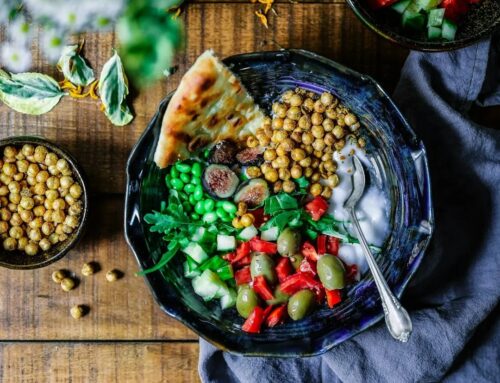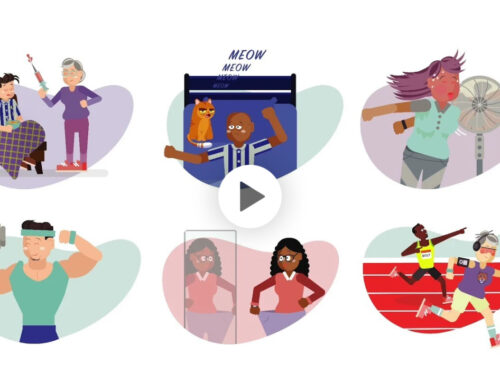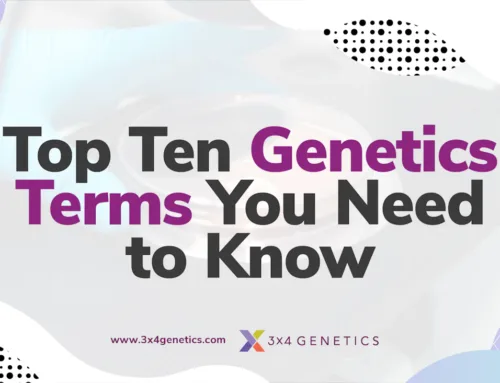You are a unique person with unique needs to optimize your health and wellness. A diet that someone else swears by may not work for you (or vice versa). But yet, you see so many “blanket” recommendations on what to eat or which supplements to take and you wonder how much that really applies directly to you. Unlike others, you may be able to enjoy coffee in the evening without any major sleep issues, but have a terrible reaction to gluten (a protein in wheat). Or perhaps, you may need more folate (vitamin B9) than others, but [luckily] sodium doesn’t affect your blood pressure as much.
Guess what? There are genes—and variations of these genes—that can explain why you are unique. And now with recent scientific and technological advances, there is a smarter way to know what nutrition and lifestyle strategies you need to thrive, rather than the old method of following recommendations for the “average person” and seeing how it goes for you as an individual. This opportunity for personalized (or “precision”) nutrition is based on the rapidly expanding field of research that specifically looks for some of your unique needs in your own DNA. Imagine what you could do with the insight to know which diet, food, or nutrients you should focus on and which won’t likely make any difference to you anyway.
We are talking about the science of nutrigenomics. It’s the combination of nutrition and genomics and helps you choose the foods and nutrients you need more of, based on your unique genetic blueprint.
What is nutrigenomics?
Nutrigenomics is a rapidly advancing science that looks at the links between nutrition (the foods and nutrients needed to be healthy) and genomics (how the DNA encoded in your genes acts in your body). It’s a form of personalized nutrition that looks at how your personal set of genes influence the nutrients you need. Nutrigenomics is a very high-tech way of tailoring nutrition recommendations to one single person, based on their unique set of genes.
Here’s how your genes work. You have a set of genes that you inherited from your parents (half from each parent). This is your unique “genetic code.” Siblings (except for identical twins) from the same parents have some similarities, but each are still genetically unique individuals. You may have different hair or eye colors, or be a different height from your siblings. All of these uniquenesses are due to your genes.
Each gene is a piece of DNA that codes for one single protein. That’s why you have thousands of genes—because your body needs thousands of proteins to do all of its cellular and molecular jobs to keep you alive and healthy. There are several variations for each gene. For example, you may be genetically predisposed to having high (or low) levels of cholesterol or a resistance (or easier ability) to losing weight. Perhaps you have a lower (or higher) ability to use folate (vitamin B9), but maybe you are (or aren’t) very sensitive to caffeine or high levels of sodium. And possibly, you are very unlikely (or likely) to develop celiac disease.
How would you know? By having an accurate genetic test done to look for variations in all of those (and more) genes.
But, it doesn’t stop there. Your genes code for so many areas of health, like metabolism, inflammation, hormones, stress response, moods, detoxification, weight, fitness, cognition, and your ability to use essential nutrients from foods and supplements.
Imagine how you could tailor your food and lifestyle choices if you knew the areas that you as a unique individual should focus on, and which areas you need not worry too much about.
How can nutrigenomics help improve my health and diet?
Let’s go through these examples so you can see what you can do when you learn your unique gene profile and take advantage of precision nutrition.
Susceptible to high levels of cholesterol
High levels of cholesterol can increase your risk for heart disease and stroke. This is partly the result of how your genes allow your body to process fats. If you knew you had genetic variants that made you prone to high levels of cholesterol, you could focus your foods on choosing more plant-based meals, heart-healthy fats, and higher-fiber foods.
Resistance to losing weight
Imagine knowing if your genes are influencing your ability to lose weight. If this were the case, you can be more forgiving in your weight-loss goals, and incorporate some cognitive behavioral therapy or mindfulness to help you.
Lower ability to use folate (vitamin B9)
Folate is found in green leafy vegetables and beans. Supplementation is often recommended for people who are or can become pregnant. If your genes code for a lower ability to use folate, then you may need to eat more folate-rich foods or take a supplement to ensure you get enough folate to compensate for your lower ability to use it so that you could maintain good health.
Not very sensitive to caffeine
Some people are able to metabolize (process and eliminate) caffeine faster than others. If you know that you are a “fast caffeine metabolizer,” you may be able to enjoy caffeine without having to worry too much about some of the common side effects that happen more often in people who are “slow caffeine metabolizers.”
Not very sensitive to high levels of sodium
Salt contains sodium, and too much sodium can increase blood pressure. However, some people are more sensitive to sodium than others.
Very unlikely to develop celiac disease
If you don’t experience gut symptoms and you are not likely to develop celiac disease, then you may not need to avoid eating gluten (a protein commonly found in wheat, rye, and barley).
And remember, these are just a few examples of how the variations in your genetic blueprint can impact your health and wellness, and how you can [strategically/proactively] address them to reach your health goals.
Nutrigenomic testing is very accessible now. It’s never been easier to answer the question, “Based on my genes, what should I eat to optimize my health?”
Science is quickly unravelling the mysteries of the human genome and that is a great opportunity for you to reach your optimal health with a strategy developed based on your genes. There is a genetic test that looks at dozens of health-related genes to identify the areas you will be naturally healthier in, and which areas may need some extra attention. Unique to you.
If you’re interested in learning more about nutrigenomics and being smart about where to make targeted nutrition and lifestyle changes that will work for you, I can help you get your test done, go through the results with you, and work with you to create a strategic plan so you can reach your personal health goals. In fact, I recently became a 3×4 Blueprint certified healthcare practitioner and I would love to help you figure out what’s going on with your body and help you be the healthiest version of you that only you can be.
Want to know which foods, nutrients, or lifestyle choices will make the most difference in your life? Order your 3X4 Genetic Blueprint today.
References
3×4 Genetics. (n.d.). Sample report: The personal genetic story of Jean Poole. https://www.3x4genetics.com/patient-faq/#
The Nutrition Society. (2018, November 19). Nutrigenomics: The basics. https://www.nutritionsociety.org/blog/nutrigenomics-basics
Sommer, Connie. (2019, June 13). Food as medicine? Scientists are getting closer through nutrigenomics. University of Southern California News. https://news.usc.edu/157675/food-as-medicine-nutrigenomics/




